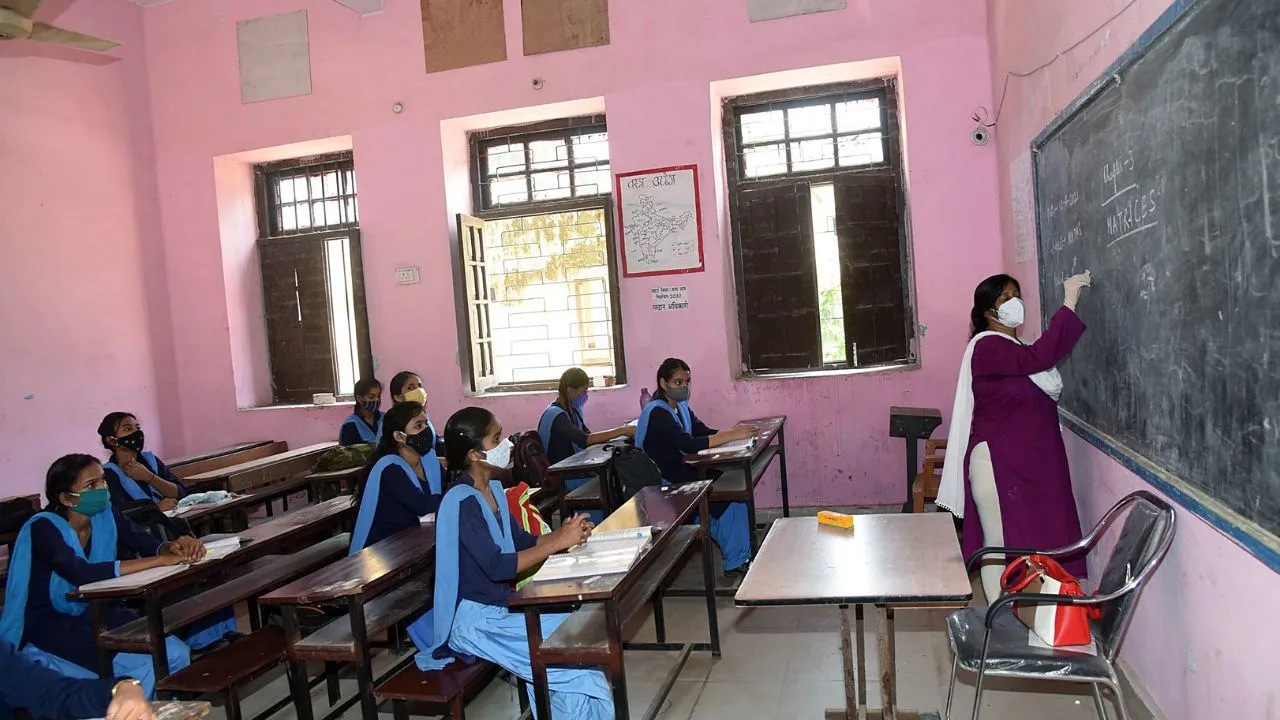- By Ritesh Kumar
- Sun, 24 Mar 2024 09:26 AM (IST)
- Source:JND
Aligned with the National Curriculum Framework for School Education (NCFSE), NCERT is set to reveal a revised syllabus for Class 3 and 6, slated to be implemented from the forthcoming academic session of 2024-25.
NCERT has devised plans to introduce textbooks for both Class 3, marking the inception of preparatory stages, and Class 6, signifying the commencement of the middle stages. To facilitate a smooth transition to the updated syllabus, NCERT has designed a "bridge program" for Class 6 and concise guidelines for Class 3. These resources are tailored for schools affiliated with the Central Board of Secondary Education (CBSE), Kendriya Vidyalaya Sangathan (KVS), and Navodaya Vidyalaya Samiti (NVS). As of now, NCERT has launched teaching and learning materials specifically designed for the foundational stage, in accordance with the principles outlined in the National Curriculum Framework (NCF).
In order to ensure the successful implementation of the new syllabus, NCERT's director, Dinesh Saklani, has requested the chairperson of CBSE to cooperate in raising awareness among school principals, educators, and parents within their affiliated institutions. NCERT has encouraged CBSE to support adjustments to school timetables according to the "local needs and specific context" of each school.
“It is crucial to inform school heads, teachers, and parents about the suggested time allocations for Grades 3 and 6 as per the NCF-SE 2023, and to encourage schools to adapt their schedules in accordance with the local needs and the specific context in which they operate,” the letter reads.
In response, NCERT has urged CBSE to develop a "strategy" aimed at revising school timetables, emphasising a "holistic" approach to teaching. This approach should encompass not only language, mathematics, science, environmental education, and social sciences but also incorporate arts, physical education, well-being, and skill education.
NCERT also mentioned that the forthcoming activity books and textbooks, aligned with the updated syllabi, will introduce students to novel subjects such as arts, physical education, vocational studies, and 'The World Around Us' for Class 3.
“This approach is not only expected to ease the students’ adaptation to the new curriculum but also aims to generate awareness about the updated educational perspective among the parents and wider community,” the letter added.
As per the guidelines outlined in NCF-SE, for the preparatory and middle stages, a typical school year would consist of approximately 34 working weeks, with each week comprising around 29 hours of instructional time. Moreover, it is recommended that a standard school week should span five and a half days, with Saturdays designated as half working days. In line with the objective of alleviating the academic load on students, NCF-SE also advocates for the incorporation of 10 "bagless days," as mandated by NEP 2020.
“The exact timings and order of subjects may be chosen to be the same each day (e.g. Language and Mathematics in the morning after a nutritious breakfast) in order to establish a daily rhythm for students; or they may be varied on a weekly basis to give different subjects different priorities each day within the time schedule. What works best for each school would depend on the local context, on whether breakfast or snacks can be offered to all students each morning, in the daylight hours in the local region, etc” the NCF-SE suggests.

